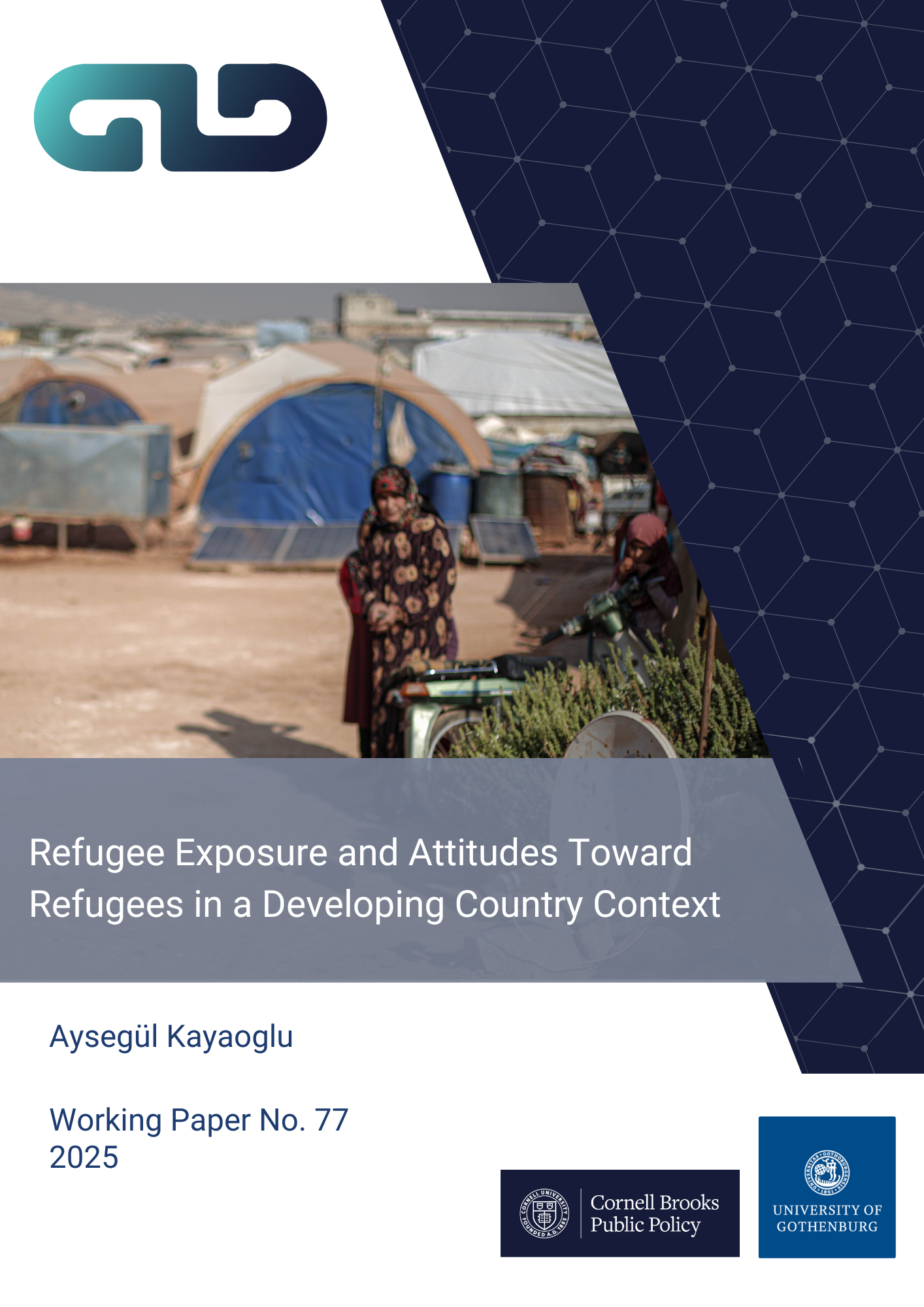No. 77 Refugee Exposure and Attitudes Toward Refugees in a Developing Country Context
Aysegül Kayaoglu
Abstract
Despite high concentrations of refugees in these areas, there is a scarcity of causal evidence on how refugee exposure affects local attitudes in developing countries. Using a quasi-experimental setting and administrative data on the spatial distribution of refugees in the country hosting the world’s largest refugee population, I examine the causal impact of refugee exposure on local attitudes and migration policy preferences. To identify this effect, I use the instrumental variables approach. Empirical findings show that refugee exposure significantly impacts perceptions of economic burden, insecurity, social distance, and migration governance. Negative attitudes predominantly arise from relative deprivation of the hosting population, leading to biased perceptions of cultural alienation. Moreover, competition in the labor market and access to public services emerge as primary factors shaping negative attitudes. Religiosity minimally affects attitudes but plays a role in shaping beliefs. Additionally, in line with the integration paradox hypothesis, increased interaction with refugees triggers cultural conflicts, portraying refugees as an ostensible threat to the majority’s culture.
Keywords: Syrian refugees; theory of exposure; contact hypothesis; social cohesion; Türkiye.
